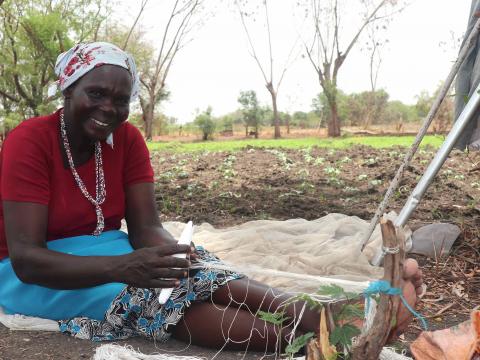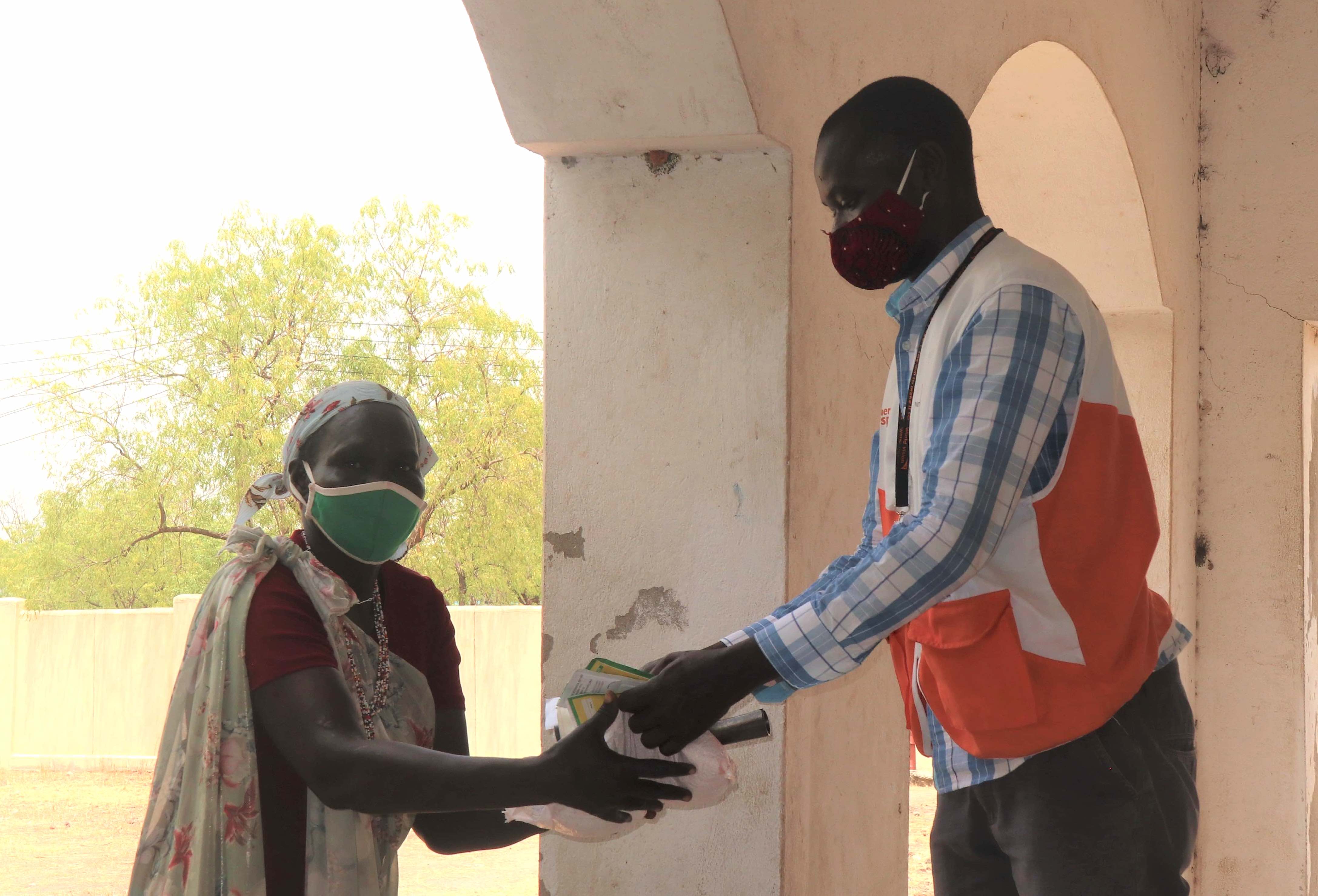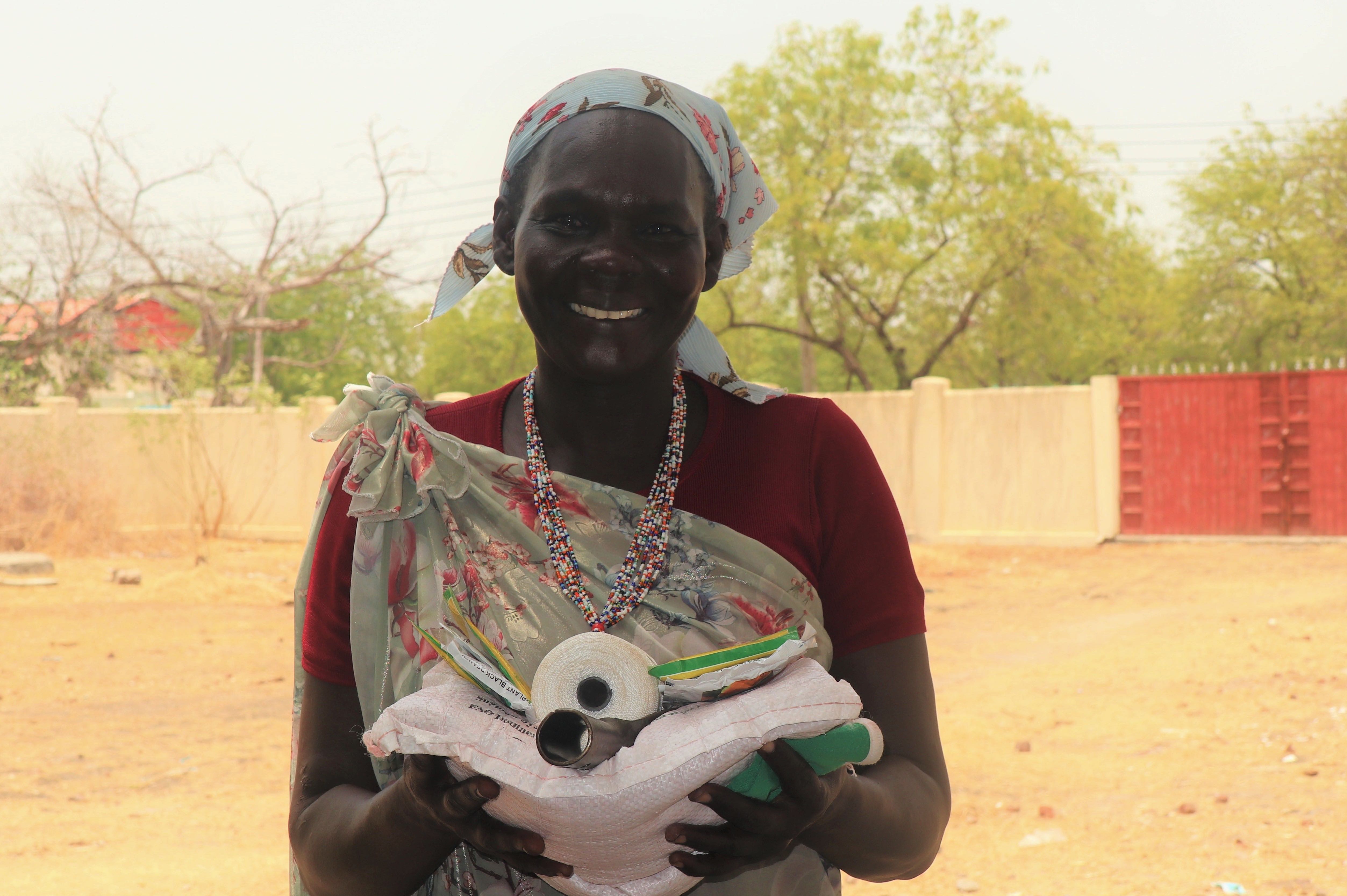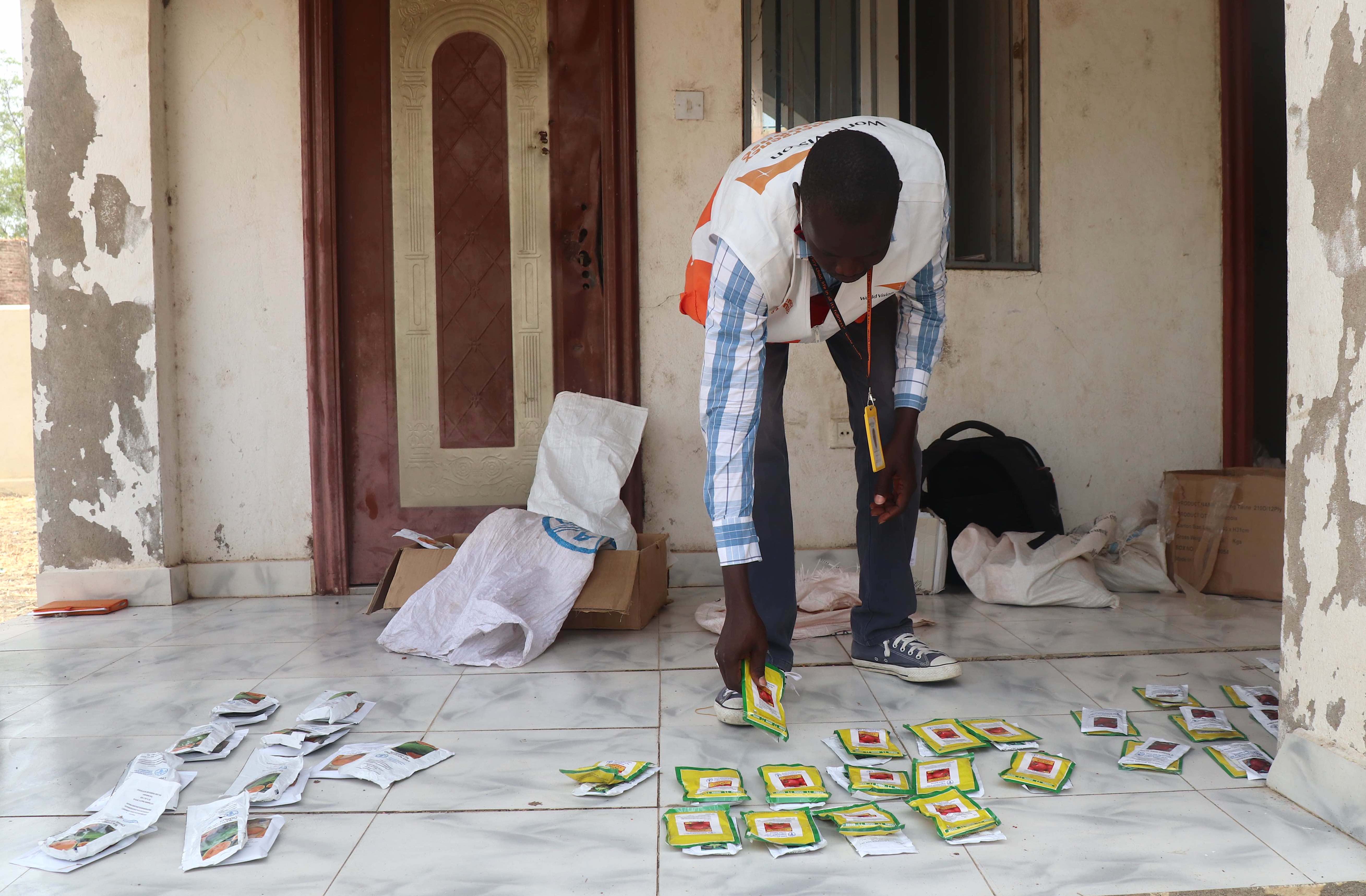How seeds can help South Sudanese mothers fight hunger and malnutrition

Mothers in South Sudan are up against incredible challenge from the COVID-19 pandemic to hunger, with over 7.7 million people projected to face food insecurity in 2021. But the spirit of hope never dim for Achol and many mothers. Their selfless determination to raise their children well are stories of courage and resilience.
“The joy of a mother is complete when she has seeds to plant”, says 49-year old Achol Arop, a mother of seven and guardian of her four grandchildren.

Achol adds, “In South Sudan, women and children suffer the most due to so many factors. My husband Rale is a government employee but does not earn enough to support the two families.”
“The seeds of tomatoes, onions, eggplants, amaranthus, collards, juice mallows, pumpkins, and watermelons were distributed to us right in time for the planting season. When we receive these vegetable seeds for planting, we are able to produce food to support the 11 children under my care”, she explains.

World Vision, in partnership with the Food and Agriculture Organization (FAO), provided seeds and fishing kits to 10,211 households in Upper Nile State, including Achol’s family. The project supports the needs of families affected by hunger and malnutrition.
I was worried where to get the seeds for the planting season as they are expensive in the market, but now, I am excited that I have them.
According to Achol, the vegetables she planted out of the seeds distributed are nutritious, thus keep her children from malnutrition and in good health. She said the juice mallow takes three weeks to harvest, while okra takes about 45 days.
“I was worried where to get the seeds for the planting season as they are expensive in the market, but now, I am excited that I have them”, she adds.

Achol has finished the land preparation and is ready to plant. “The seeds motivate us as women farmers to work hard to support our families. I am grateful that World Vision and FAO are supporting us to keep our families alive”, she shares.
Manase Gwolo, Food Security and Livelihood Coordinator said the distribution of vegetable seeds is vital to children amidst the looming hunger in the country. The seeds do not only produce food but also promote good health and help fight illnesses in early childhood and adulthood.
He further urged donors and government agencies to support more farmers with seeds and training to increase vegetable production to improve household food sources, reduce malnutrition and restore food security in the country.
Watch: Women in the frontline to boost food security
Story and photos by Scovia Faida Charles Duku, Communications Coordinator